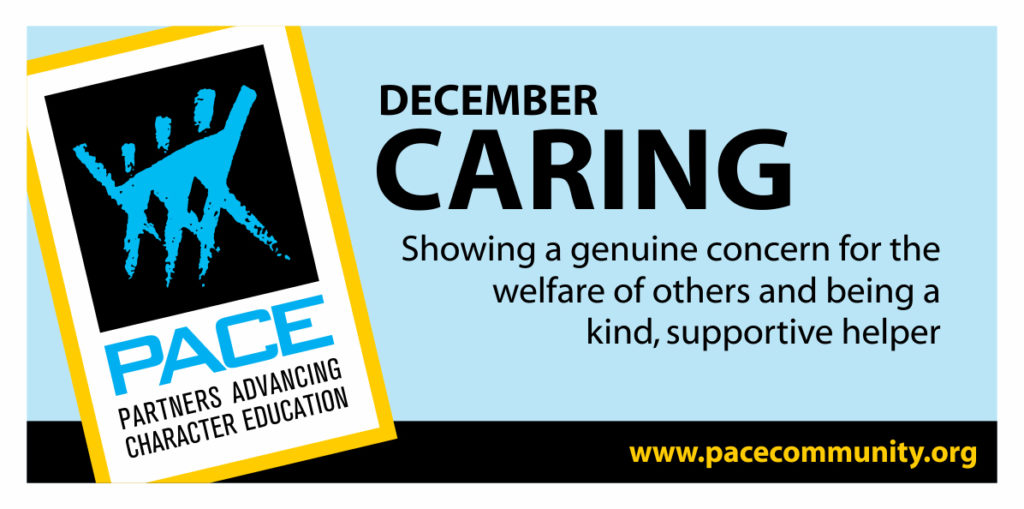Of all the PACE character traits, perhaps none engender more consternation, sanctimony, or passion than citizenship. Inherently subjective in nature, the concept itself has been bandied about and debated since the very dawn of the western democratic ideal amongst the sixth century BCE city-states of ancient Greece. From Solon to Pericles, from Socrates to Cicero, from Machiavelli to Montesquieu, from John Adams to Patrick Henry, from Reagan to Chomsky, from even from Donald Trump to Colin Kaepernick, the definition, and perhaps more importantly, the practice of the virtue of citizenship has been as fluid as it has been timeless.
One thing all Americans can agree on, however, is that citizenship is vital both to the health of the republic and the education of her youth. To that end, civic leaders like Sandra Day O’Connor, the board of Spokane Valley’s PACE initiative, or our own George Nethercutt, in the spirit, unwittingly or not, of the early twentieth century philosopher John Dewey who argued that the connection between a strong education system and a vibrant, just democracy cannot be ignored, have bravely devoted their energies to bringing the subject of civics to the fore of public school curricula in a period defined by the shift towards more vocational educational programs like STEM or even the specific kinds of literacy codified and mandated by the Common Core.
To clarify, two truths appear to be self evident: one, the definition of citizenship means different things to different people at different times; and two, despite this all Americans, if not all global citizens, regardless of political affiliation or ideology, agree that an understanding of the rights and responsibilities of citizenship are critical to the health of our schools and our polity. So where does that leave us? And more importantly, where does that leave our students?
As a teacher who has had the privilege to engage students in discussions about the meaning, importance, and application of citizenship during my tenure with the West Valley School District, this same tension between ambiguity and urgency regarding the application of citizenship is also manifest. In my mind, it is precisely this tension that should be identified, celebrated, and nurtured as the very soul of American citizenship in the twenty first century. That is, rather than attempting to pin down absolutes and then chastising or ostracizing those that fail to live up to them, all citizens, let alone formal educators like myself, should take pride in the fact that multiple definitions of citizenship are able to co-exist and thrive in what nineteenth century utilitarian philosopher John Stuart Mill described as something akin to a great marketplace of ideas. This is the essence of civic education. As Bertrand Russell put it in a 1951 article on the ten timeless commandments of teaching and learning, “Do not feel absolutely certain of anything.” Through the dual lenses of citizenship and education, this assertion implies that teachers model for and demand of their students a civic ethos premised on empathy for the differing opinions, and the life experiences of others that produced those opinion, and an ongoing commitment to rationally re-examining their own biases and prejudices in regards to what does or does not constitute the definition of citizenship in 2016. Long story short, citizenship is not about being judgmental nor is it simply about reciting the Pledge of Allegiance at the beginning of the day’s first class. Instead, true citizenship is about a commitment to critical thinking concerning our society’s most pressing issues with an understanding that ambiguity, uncertainty, and the concomitant discourse are ends unto themselves that are to be embraced, rather than shunned for the cold comfort of what we fleetingly belief to be “true.” After all, if I may borrow again from the corpus of Mr. Russell, civic-minded students and citizens would be wise to consider that they might, “find more pleasure in intelligent dissent than in passive agreement, for, if you value intelligence as you should, the former implies a deeper agreement than the latter.”
Ned Fadeley is a fifth generation Spokanite who has taught English and History
in addition to serving on the Civic Thinkers Committee in the West Valley School
District since January of 2007. He holds a Master’s Degree in American History and
hopes he can live long enough to see the Mariners win the World Series.


